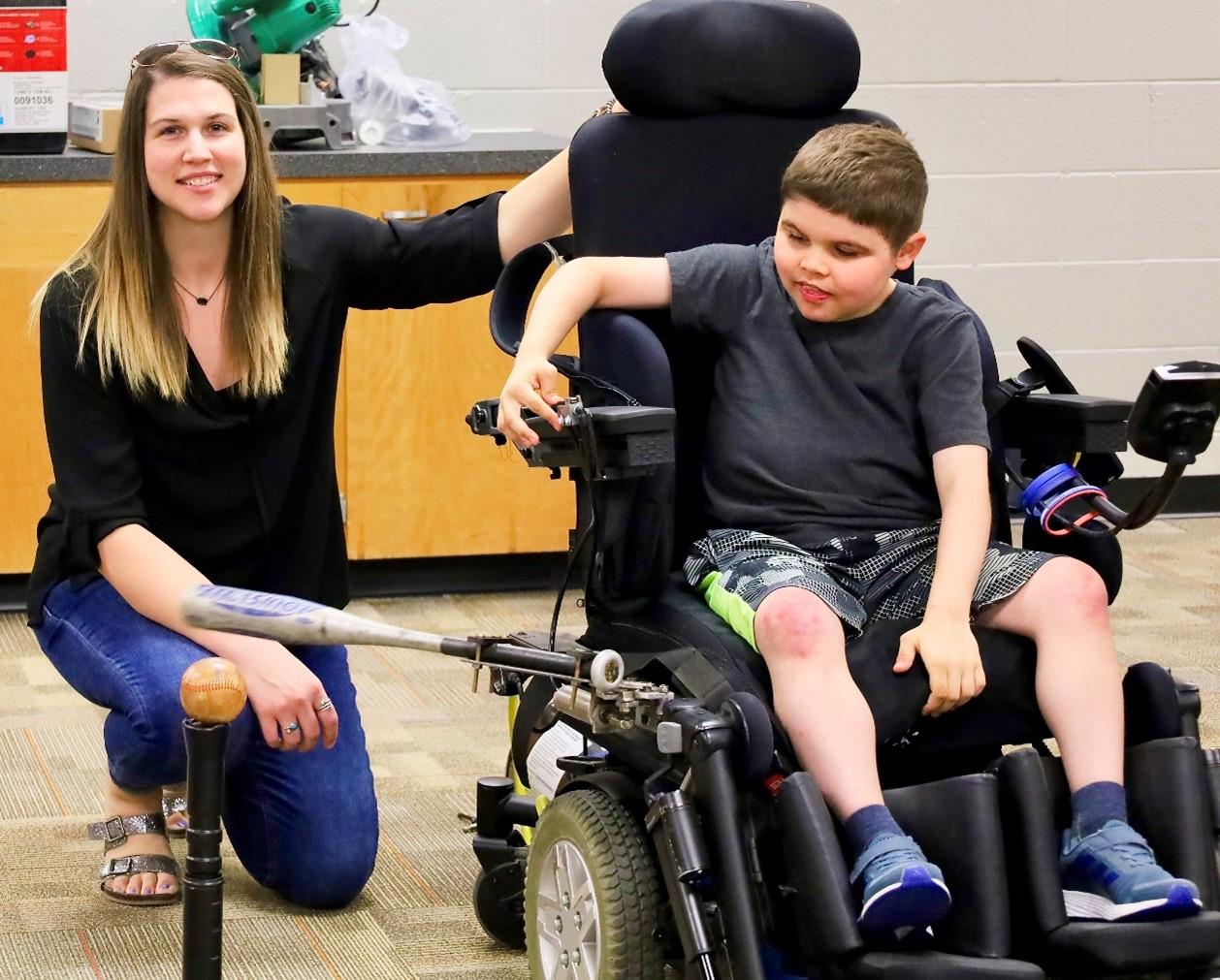
Lukus Ognibene loved baseball and playing the sport with his brother Tyler. But Lukus was born with Duchenne Muscular Dystrophy, a disorder that leads to muscle deterioration that worsens over time.
Carriers of the disease have a 50-50 chance of passing the disorder to their children. Lukus has it. Tyler does not.
“It’s a disease that runs in the family,” said Jenne Ognibene, the boys’ mother, and an engineering student and workforce trainer at Temple College. “I have three brothers who have struggled with this disease.”
Eleven-year-old Lukus hasn’t been able to walk since December, and he struggles to hold a bat. He’s confined to a wheelchair and hasn’t been able to play ball in months — until now.
Thanks to his mom’s hard work, determination and ingenuity, Lukus is again taking his cuts.
Jenne’s dad, Douglas Fleming, had an idea for equipping a wheelchair with a device that would allow kids like Lukus to bat. It was just an idea.
“I’m taking manufacturing and engineering courses, and one of my classes is in Temple College’s Prototype Lab,” she said. “I got to thinking about my dad’s idea, and decided I was going to equip a wheelchair with a pneumatic system that would allow Lukus to hit a baseball.”
Jenne partnered with fellow students Lori Kliebert and Mauricio Leza, and the three went to work.
“Lori did a lot of research into the project, and Mauricio did much of the computer-aided design,” she said. “Our hard work paid off. I have a true passion for making adaptions for people with disabilities.”
The pneumatic batting attachment — officially dubbed the HandiBat — works with pressurized air provided by an air compressor or tank.
“Eventually we will equip the wheelchair with an air tank so we don’t have to carry one to the batter’s box,” Jenne said. “It will be part of the batting chair.”
The bat — Lukus uses a Louisville Slugger — is attached to the compressed air source and the wheelchair, and it is activated by a button that starts the swing. The bat is set for T-ball, but the angle of the swing can be manipulated for actual baseball.
“At some point, I’d like to design something similar for tennis,” she said. “We’re working to get it patented, but we want to keep it as affordable as possible — special-needs families have enough expenses.”
Jenne and her HandiBat teammates are part of the Temple College SkillsUSA STEM Club that won top honors in a statewide competition and will advance to a national competition this summer in Atlanta. The HandiBat team won first place in Engineering Technology Design.
“I am so proud of these students and the way they’ve competed at this high level,” said Dr. Sandra Melendez, chair of Temple College’s Department of Engineering Technology and the club’s advisor.
“They are proof that STEM students from a variety of backgrounds can work individually and collectively to innovate and create products that will better their communities and the world,” Melendez said. “We hope their love for engineering technology — and the success they’re experiencing — will inspire others to pursue educational opportunities in STEM.”

One of the workstations in the Lowe’s Prototype Lab at Temple College is shown above. The equipment, tools and tool boxes in the lab were obtained through a $15,000 grant from Lowe’s. This is where Jenne Ognibene, Lori Kliebert and Mauricio Leza — TC students and STEM Club members — designed and built the HandiBat, a pneumatic device that allows disabled people to hit a baseball while in a wheelchair. David Stone photo